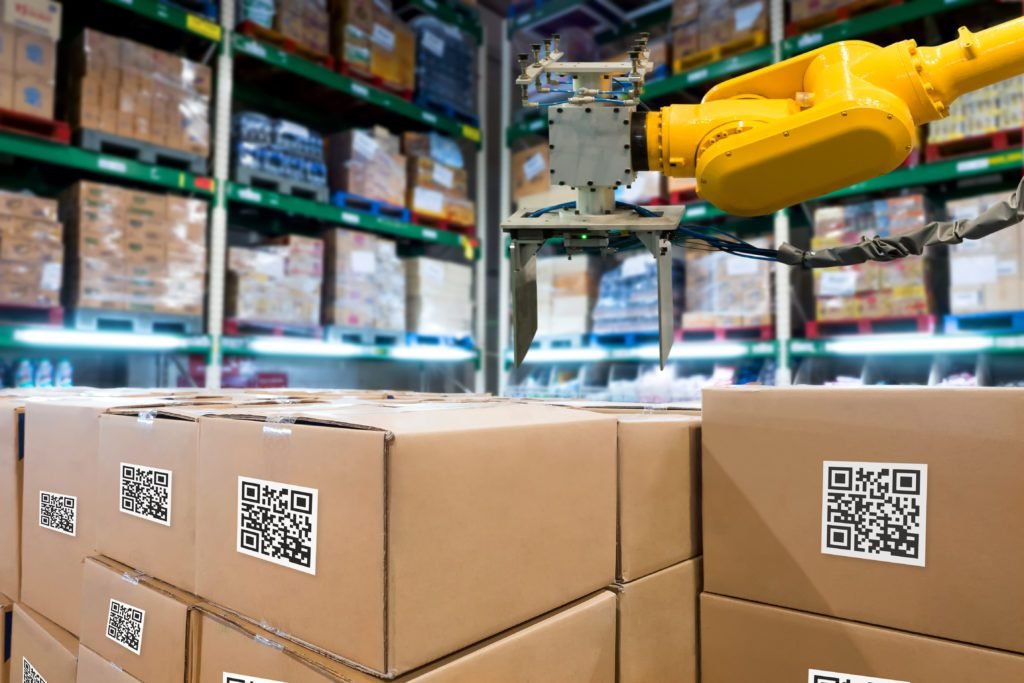Blockchains can be referred to as an upcoming technology, which has enough abilities to reduce cyber security risks available in supply chains. These mostly deal with an auditable, inconvertible history of transactions, bringing about a verifiable identity.
To begin with, blockchains can be understood as a digitally distributed ledger that tracks transactions among several parties. It is best known for its remarkable roles in cryptocurrency systems, in order to maintain transactions that are mostly decentralized. Blockchains mostly deal with the security and understanding of information, in order to generate trust without any third-party providers.
If you are aiming to become a supply chain analyst, then this article will provide you with information regarding the role of blockchains in supply chains.
How do Blockchains Enhance the Functioning of Supply Chains?
- Data Visibility: Increased data visibility could bring about greater transparency and trackability of up-to-date information. Once included, these records cannot bring about change. For instance, these roles are best applicable in the cases of food safety. Data visibility allows you to track mistakes and enhance the safety of the products.
- Process Optimisation: Blockchains provide help to optimize business operations and processes. Inefficiencies present in the supply chains are mostly manual, application-based procedures that can cause mistakes, increase fraudulent activities and bring about difficulties in management processes.
- Technical Considerations: Several requirements such as scalability, integrity, and security must be met in an enterprise ecosystem. The blockchains designed for business purposes bring about a sense of identity as well.
Infrastructure also plays an important role as protection must be provided against the tampering and misuse of information. This can also add up to a higher rate in the production of data at a fast rate. Round the clock, availability is also included to support ledger replication.
- Collaboration: Blockchain helps in combatting collaboration issues by adding up data and providing a centralized platform. Intermediary requirements are also negated by saving the organization’s primary aspects such as time and finances. It also helps to decrease miscommunications and problems, creating a platform where people can function efficiently.
- Increased Automation: Most freight invoices comprise inaccurate and unnecessary information. These bring about vulnerabilities such as errors and miscommunication, leading to inefficient supply chain management.
Blockchain plays an adjusting role by bringing about suitable product activities. Delivery speed also increases, which finally leads to better services.
Advantages of Blockchains in Supply Chains:
The role of blockchains is to provide successful transactions or transaction facilities.
- ERP Software is mandatory when it comes to storage functions and managing business activities which include handling of employees, production as well as accounting. Blockchain makes such functions smoother by connecting all the organizations in order to bring efficiency to the whole process.
- Life cycle management is properly enhanced with the help of blockchain technology. Sufficient feedback is provided to the consumers and other members who are part of the supply chain. A distributed consensus is realized where online transactions can be understood in the future.
- Blockchains store products, order details, and IoT. Order and transportation are also provided to find the trust of all stakeholders present in the supply chains. These sensors are mostly updated over the cloud and real-time tracking.
- Blockchain systems are applicable to not only managerial sectors but to healthcare, agricultural, and legal facilities as well. Inventory management, forecasting, asset tracking, and intellectual property storage area used by blockchains to make the supply chains more alert.
- Real estate industries are heavily benefited from blockchains because complete decentralization is provided.
Conclusion:
If you are looking for a supply chain and analytics management course, then Imarticus Professional Certification in Supply Chain Management and Analytics is the most ideal course available.
 Lessons provided from IIT supply chain management based in Roorkee, the course provides for live sessions with faculty experts and a curriculum approved by industrial leaders.
Lessons provided from IIT supply chain management based in Roorkee, the course provides for live sessions with faculty experts and a curriculum approved by industrial leaders.
Opportunities for working with international SCM projects are also provided. Overall, this certificate course will fulfill all your interests in blockchains and supply chain management.








